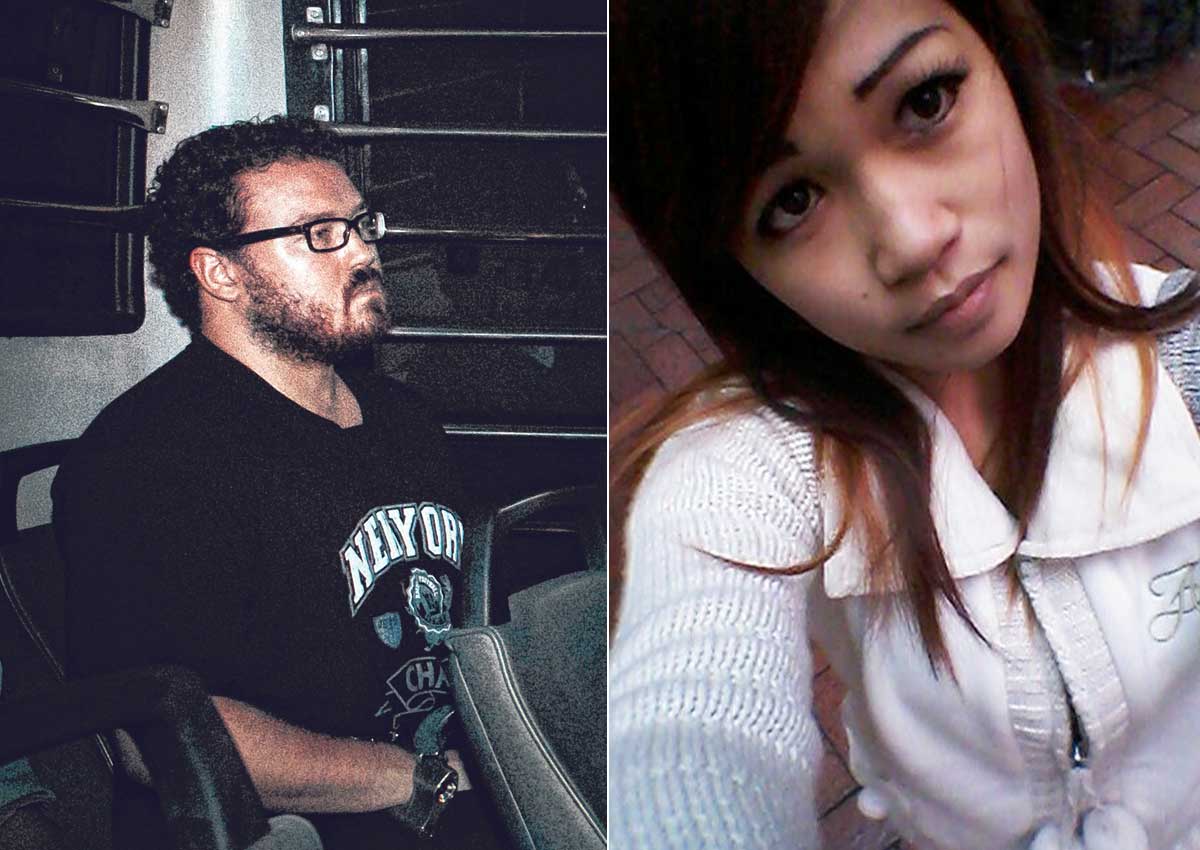Her baby was just 40 days old when Ms Sumarti Ningsih left for Hong Kong in 2011 to work as a domestic helper.
It wasn’t an easy decision for the single mother to leave the newborn and her family behind in Indonesia.
But the 23-year-old had no choice because in their small town of Cilacap in Central Java, work was hard to come by.
It was a question of putting food on the table.
Ms Ningsih’s brother, Mr Suyitno, told The New Paper over the phone from Cilacap yesterday: “She did not just send us money, she also brought much joy to our household. Every one was happy when she was around.”
But their world came crashing down when Ms Ningsih and another Indonesian woman, Ms Seneng Mujiasih, were brutally killed in Hong Kong two years ago.
The murderer, British investment banker Rurik Jutting, was sentenced to life in prison yesterday.
Upon hearing news of the verdict, Mr Suyitno, 27, said his family could finally feel “relief” after two years of waiting.
Speaking in Bahasa Indonesia, he said: “We as a family are happy with the verdict and we’re thankful to the government which took our family’s side.”
But he added that his family intends to ask for compensation and will be consulting their lawyers.
Mr Suyitno, who is unemployed, said his sister would occasionally visit her son, Muhammad Hkafiz Arnovan, bearing toys and clothes.
The boy, now five, would happily accept these presents from the woman he called “auntie”, without knowing she was his mother.
He was taken care of by Mr Suyitno’s parents, and to him, they were his parents.
Mr Suyitno said Ms Ningsih never came home empty-handed.
He said: “When she came back, she would bring clothes or toys for her son, even though he did not know who she really was.
“She just wanted the best for him.”
Mr Suyitno said they have since told the son that the “auntie” will not come home with presents again.
Mr Suyitno described his sister as a “happy and fun person” whose top priority was her family.
To support her family, she started working at a young age as a babysitter and cleaner.
Despite being away, Mr Suyitno said his sister “never forgot” about her family.
She would regularly send back money and would always remind her family to “give Hkafiz what he wanted”.
ODD JOBS
The family of four now survives day-to-day by doing odd jobs.
In the two years since Ms Ningsih was murdered, Mr Suyitno said his family had always stayed away from news about the investigations or the trial because the grisly details were too much for them to bear.
“People would come up to us and give us updates. To be polite, my family would listen but would never ask to find out more,” he said, his voice cracking.
He added: “Each new piece of information was too horrific to imagine. We did not seek it out.
“We just want good memories of her.”
‘He’s an extreme danger to women’
The judge called his actions “sickening in the extreme and beyond a normal person’s imagination”.
The gruesome tale of torture, rape and murder, which played out in the Hong Kong High Court over 10 days, came to a predictable end yesterday.
British investment banker Rurik Jutting, 31, was sentenced to life in prison for the 2014 murder of two Indonesian women – Ms Sumarti Ningsih, 23, and Ms Seneng Mujiasih, 26.
The four women and five men who made up the jury returned unanimous verdicts on both counts after less than six hours of deliberation yesterday, pronouncing Jutting guilty of both murders.
As soon as the verdicts were delivered by Justice Michael Stuart-Moore, the crowded public gallery broke out in applause.
The court room was packed to the brim with people who included local and foreign journalists and migrant worker activists and was so full that the doors could not be closed.
Jutting, who was clean-shaven and dressed in a blue collared shirt and dress pants, remained expressionless as the sentence was read out.
As he was escorted out by security personnel, he breathed heavily and furrowed his brows.
Before sentencing him, Justice Stuart-Moore said that Jutting was an “archetypal sexual predator” who presents an “extreme danger to women”.
“There are insufficient superlatives to describe what he did,” he added.
‘I’M SORRY’
Jutting, in a handwritten statement read by his lawyer Tim Owen, expressed horror and remorse at his own crimes, saying he remained “haunted” by what he had done.
“My actions… were horrific even by the standards of a homicide drama,” his statement said, noting that he had caused “acute pain” to the victims’ families.
“The evil I have inflicted can never be remedied by me, in words or actions… For whatever it may be worth… I’m sorry beyond words.”
His lawyers told the court that Jutting will apply to serve his sentence in Britain, where prisoners can, in some cases, apply for parole after a fixed number of years.
Such transfers are possible under the Transfer of Sentenced Persons Agreement between Hong Kong and Britain.
Justice Stuart-Moore acknowledged the application, but said he would inform the British authorities of “exactly what type of danger he (Jutting) poses”.
The case had grabbed headlines worldwide for the brutal manner in which the former Bank of America Merrill Lynch employee had killed his helpless victims at his upscale Wan Chai district apartment.
The women had gone to his apartment after he offered them money for sex.
Fuelled by cocaine and alcohol, he tortured Ms Ningsih for three days and recorded parts of the torture on his phone. The jury was forced to watch the clips.
Jutting killed her by slashing her throat in his bathroom. He then stuffed her body into a suitcase which he stored on his balcony.
In hours of self-recorded ranting on his iPhone after Ms Ningsih’s murder, Jutting described his attacks on her using pliers, sex toys and a belt.
Days later, he murdered Ms Mujiasih by slashing her throat in his living room. Both women were found dead in Jutting’s flat on Nov 1, 2014, after he called the police.
Jutting denied the murder charges and claimed trial when he pleaded guilty to a lesser charge of manslaughter on the grounds of “diminished responsibility” due to alcohol and drug abuse and sexual disorders at the time of the killings.
But over the course of the trial, the prosecution argued that he was able to form judgments and exercise self-control before and after the killings.
harizbah@sph.com.sg
hpeishan@sph.com.sg

This article was first published on Nov 9, 2016.
Get The New Paper for more stories.































































